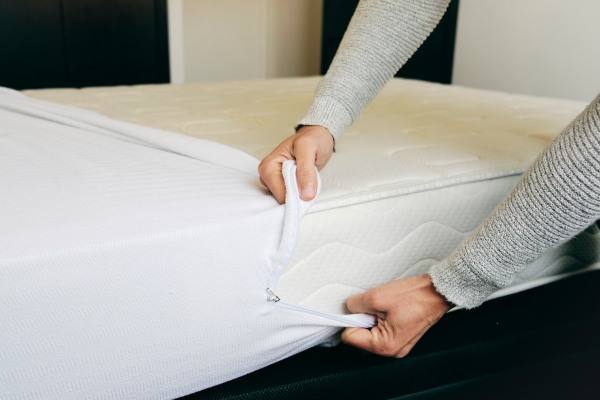Air Mattresses Protect Against Allergens?
Air mattresses have become a popular choice for sleepers due to their comfort, versatility, and ease of use. However, for individuals who suffer from allergies, the question remains whether these mattresses provide sufficient protection against allergens.
In this article, we will delve into the topic of air mattress protection against allergens, discussing the various types of allergens, their effects on sleep, and the features of air mattresses that can help keep you safe. Additionally, we will provide you with important statistics and online data to help you make an informed decision.
Types of Allergens:
Allergens are substances that can trigger an allergic reaction, causing symptoms such as sneezing, congestion, and itchy eyes. The most common allergens include:
- Dust mites: These microscopic creatures feed on human skin cells and produce waste that can trigger allergic reactions.
- Pollen: Pollen from trees, grasses, and weeds can cause respiratory issues and itchy eyes.
- Mold: Fungi that grow in damp environments can release spores that can trigger allergic reactions.
- Pet dander: The skin and fur of dogs, cats, and other animals can produce dander, which can cause allergic reactions.
- Bed bugs: These tiny insects feed on human blood and can cause itchy bites and allergic reactions.
Effects of Allergens on Sleep:
Exposure to allergens can significantly impact sleep quality and duration. According to the American Academy of Allergy, Asthma & Immunology, allergy sufferers are more likely to experience sleep disturbances, including insomnia, sleep apnea, and restless leg syndrome. These sleep disruptions can lead to fatigue, mood disturbances, and decreased productivity.
Features of Air Mattresses That Protect Against Allergens:
Air mattresses offer several features that can help protect against allergens:
- Hypoallergenic materials: Many air mattresses are made with hypoallergenic materials, such as breathable fabrics and non-toxic foams, that are less likely to trigger allergic reactions.
- Waterproof layers: Air mattresses often have waterproof layers that prevent moisture and allergens from seeping through to the mattress.
- Easy cleaning: Air mattresses are generally easy to clean and maintain, making it simpler to remove allergens and keep the mattress fresh.
- Adjustable firmness: Many air mattresses offer adjustable firmness, allowing you to customize the mattress to your preferred level of comfort and support.
According to a survey conducted by the National Sleep Foundation, 60% of Americans experience allergy symptoms during the night, leading to poor sleep quality and daytime fatigue. (Source: National Sleep Foundation)
A study published in the Journal of Allergy and Clinical Immunology found that exposure to dust mites in bedding can lead to reduced sleep quality and increased symptoms of depression. (Source: Journal of Allergy and Clinical Immunology)
A report by the Centers for Disease Control and Prevention (CDC) states that over 50 million Americans suffer from some form of allergies, with dust mites being the most common allergen. (Source: Centers for Disease Control and Prevention)
Conclusion:
Air mattresses can provide protection against allergens by offering hypoallergenic materials, waterproof layers, easy cleaning, and adjustable firmness.
By choosing an air mattress with these features, you can reduce your exposure to allergens and enjoy better sleep quality. Remember to always check the materials and construction of the air mattress to ensure it meets your needs and provides the protection you require.

